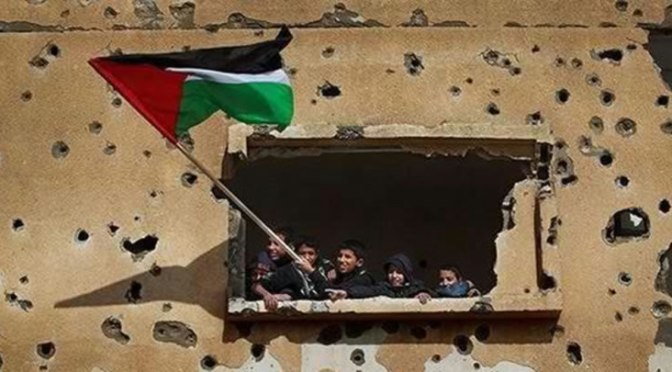“The Palestinian cause is not a cause for Palestinians only, but a cause for every revolutionary, wherever he is, as a cause of the exploited and oppressed masses in our era.”
– Ghassan kanafani
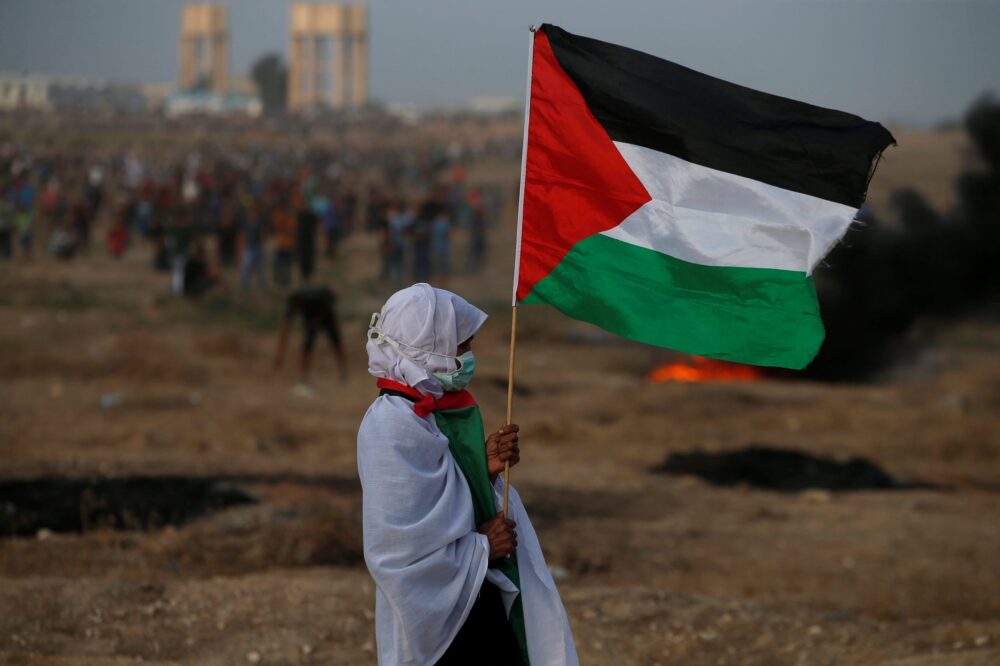
Why 29th Nov as the international day of solidarity with the Palestinian people?
29th Nov is observed by the United Nations as a day in solidarity with the Palestinian people. 29th Nov is chosen for the day since 1978 because of its significance among the Palestinian people. UN passed the resolution 181 or Partition plan of Palestine into an Arab state and a Jewish state. The resolution was passed in the UN on Nov 29, 1947, with 33 votes in favour, 13 opposed and 10 abstentions. On May 14, 1948, the British announced the end of the Mandate that began way back in 1920 under the league of nations and left Palestine. On the same day, Israel announced independence and the civil tension intensified between Palestine and Israel.
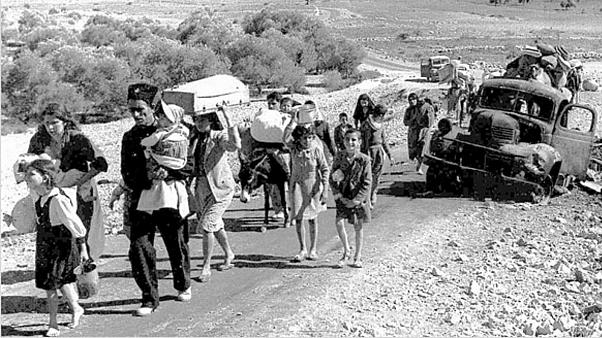
Nakba (catastrophe) and the War of Independence
After the fall of the Ottoman Empire mandate of Palestine went to the British. In 1917, the British has issued the Balfour Declaration, expressing their support for the Jewish homeland in Palestine. After the Palestine mandate was given to the British under the league of nations mandate British assumed the responsibility of Palestine and in the two decades that followed around 100,000 Jews entered Palestine. In the 1930s, the British created the Peel Commission (1936) for resolving the issue of land between the Jews and the Arabs.
After the world war, one-third of the Jewish population was killed in Holocaust, and the British restricted Jewish emigration into Palestine to please the Egyptian and Saudi for the oil. After the fall of imperialism, the United Nations was formed and the Jews once again started to nurture the hope to find a land in Palestine.
In 1947 UNSCOP was formed and the proposal for the partition of Palestine was given by the UN. The partition plan was similar to the Peel Commission created by the British. As per the partition plan, Palestine would be divided into two states – Jews state and Arab state and Jerusalem would come under the UN. The Arab leaders rejected the plan because they did not quite approve of the idea of Jews getting the land which actually did not belong to them however for the Jews it was news of joy and the time to turn their dream into reality hence the Jews were overjoyed.
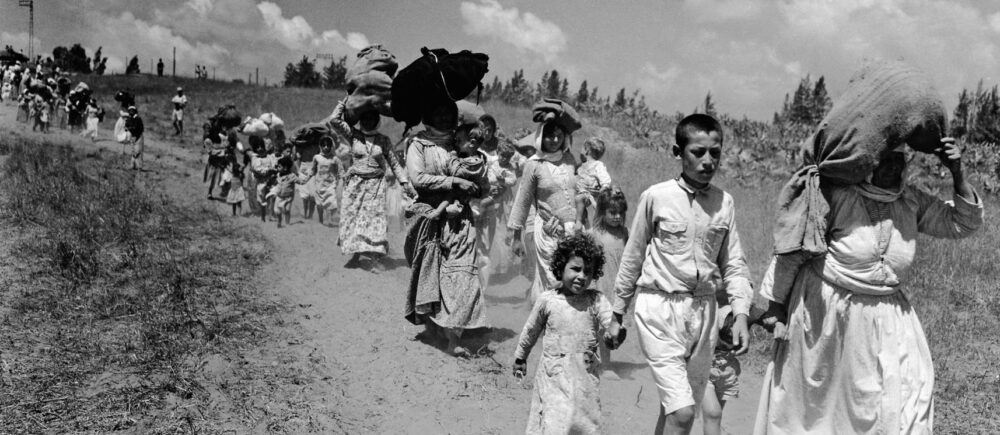
After the vote, on Nov 29, 1947, two sovereign states would come into being. So where is the other state? Soon after, tension arose between the two parties and civil war broke in the time when the British were still in Palestine. British left Palestine on May 14, 1948, and Israel declared independence. 1948 was the year of joy for the Jewish whereas for the Arabs it was the catastrophe owing to the loss and displacement of so many Palestinian.
Literature in exile
Literature has indirectly documented the Palestinian narrative. The massacre and the loss of Nakba in the memory of Palestinian people are Recreating Palestine. Reading the history of Nakba from an external source and reading it through the words of Palestinian who witnessed the massacre and expulsions is two varied things. Palestinian began expressing their trauma from poetry as Ghassan Zaqtan, Palestinian poet and novelist says” Addressing the Nakba through poetry started before 1948. It predicted the events which happened in the face of abandonment. Prose came later.”
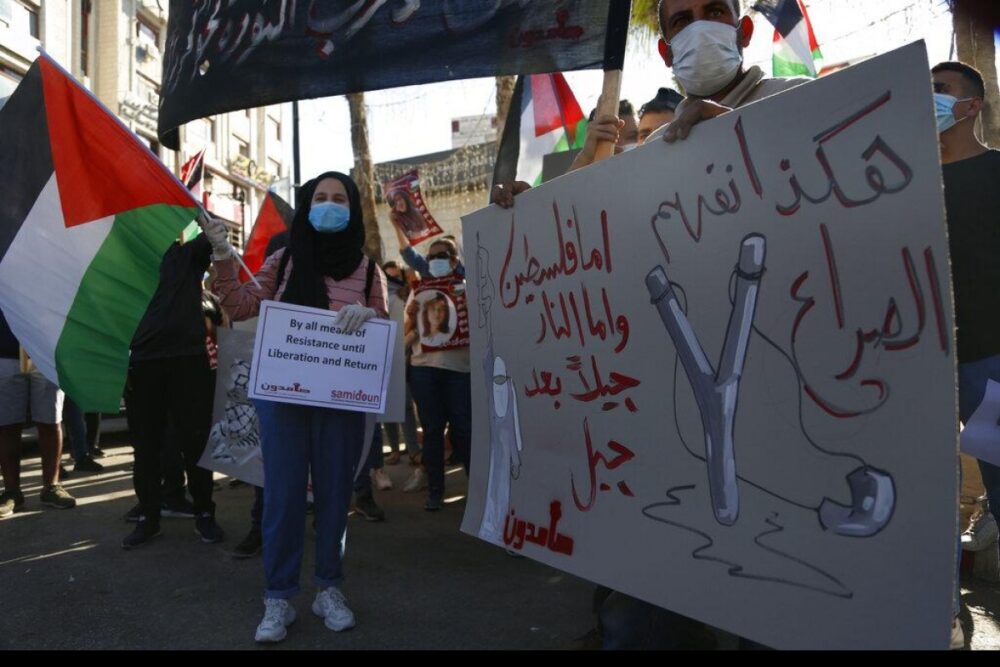
Jabra Ibrahim writes in his novel ‘The Ship’ (1970) “All Palestinian are poets by nature ” and further adds, “They must not write poetry, but they are poets for they have known two important things: the beauty of nature and tragedy.”
Poetry is the most dominant genre in the literature of Palestine. During the first half of the 20th century, we see a shift in the genre of poetry. Irregular metre and simplified poetry replaced traditional verse poetry. Poets experimented with new techniques in the genre. The name of Ibrahim Tuqan is one such example among the other modern poets. Ibrahim Tuqan wrote love poems as well as nationalist and revolutionary poems. His poetry centres around the theme of despair, sadness as well as rebellion. Called by Arab critics as ‘Poet of Palestine’ Ibrahim Tuqan contributed immensely to the Canon of Palestinian literature.
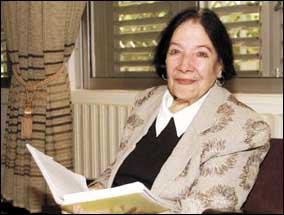
Fadwa Tuqan, sister of Ibrahim Tuqan was among the first to experiment with the irregular metre in her poetry. Classical Arab poetry was highly metrical and monorhyme at that time. Tuqan writes in her Autobiography ‘A mountainous Journey’ how strict metrical tradition was hindering her from expressing her emotions and moods. Fadwa Tuqan’s poetry was born out of Isolation and was her personal aspiration for liberation.
She writes, ‘The Palestinian poet was the direct product of the current struggle in Palestine and at the same time an effective force influencing that struggle.’ Tuqan’s ‘The Night and Knights’ (1969) that she wrote after the six days of war of 1967 contains revolutionary poems.
Following the Israeli Occupation, the question of Palestine, theme of return to the homeland are prevalent in the poetry. Post the 1967 war special type of poetry emerged – The poetry of resistance. Resistance against the Israeli occupation is found in the poetry of Samih Al-Qasim, Mahmud Darwish, and Tawfiq Zayyad.
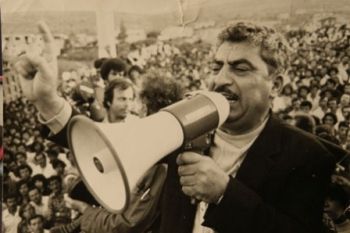
Tawfiq Zayyad’s poetry is a reflection of his belief that the Zionists cannot compel them to leave their homeland. He portrays his resilient in his poem when he writes, ‘Here we shall stay, A wall upon your breast’ and that the Palestinian will not remain silent they will project their resistance by ‘Swarming the streets with our wrath’ And this struggle that began even before 1948 will not end and the Palestinian those under Israeli occupation or elsewhere in the world living in Exile will continue to rear ‘vengeance in New generation.’
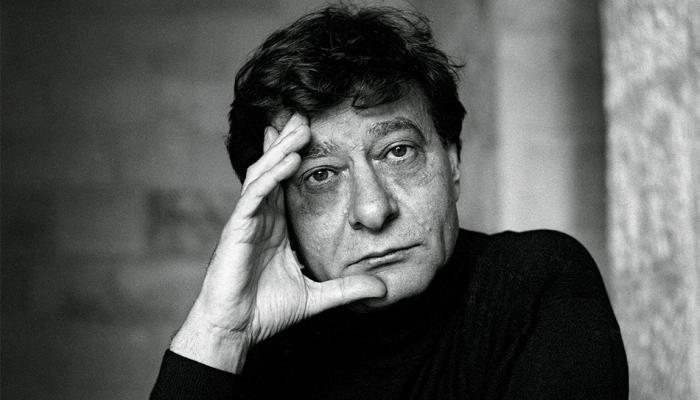
Mahmoud Darwish who lived in Exile before he returned to Palestine wrote apart from love poems, revolutionary poems like ‘A lover from Palestine (1966)’, and ‘Writing by the light of Gun(1969). Darwish’s poetry is a song of longing for the homeland. His poetry is the melancholic representation of loss and alienation that result from exile. In his famous poem ‘A lover from Palestine’ Darwish yearns for his lover, his land – Palestine.
“A thorn in the heart are your eyes
Lacerating, yet adorable
I shield it from the storm
And pierce it deep through night and pain
For Darwish Resistance is” an expression of rejection of the status quo”
Like the revolutionary poet Darwish, there are other poets such as Samih Al-Qasim, Rashid Husayn, Salim Jubran, and Fawzi Jirayyis to name a few.

The resistance and resilient of Palestinian people through various art form continues against the Israeli occupation and stories of Nakba is buried every day into words. There are loss and yearning but the Palestinian are not the one to leave the ground. As in the words of Tawfiq Zayyad,
Here we shall stay with ice – Hearts
Red hell in our nerves and hearts
We squeeze the rock to quench our thirst
And lull starvation with dust
But We shall not depart.
Also Read:
Nations Day 2020: Significance and The Journey Thus Far
Decoding the communal fallacies between the two identities – III


